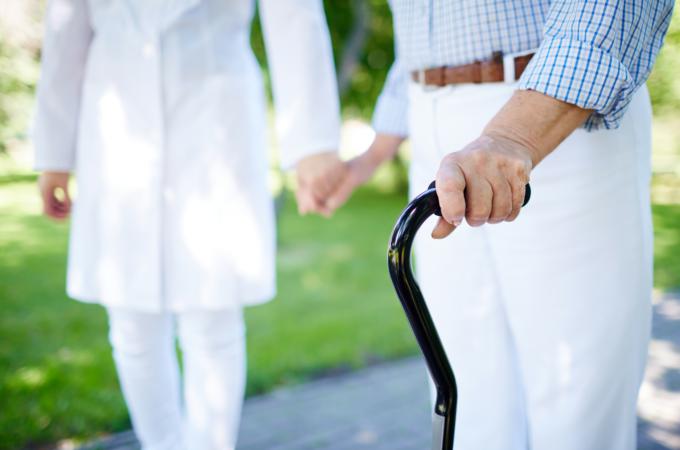Aging parents? Mistakes to avoid when visiting from out of town
If you have out-of-town parents, you are likely to be making plans for an overdue visit this summer. Regardless of how frequently you check in over the phone, an actual in-person visit can be both eye-opening and frustratingly difficult, especially if it's been a while since your last visit.
I work with many families experiencing the tension that comes from care-giving for aging parents. I have found there are five common mistakes made by adult children that increase tension. Whenever I visit my own 90-year old mother in Philadelphia, I find if I can avoid these mistakes, it makes a world of difference in the quality of our time together.
1. Don't expect your parents to be the same.
You could be surprised by the changes you find if you see your parents infrequently. Physical frailty, loss of hearing or vision, and mobility issues all become more noticeable over time. These changes impact quality of life, adding stress and complicating even the simplest tasks of daily living.
2. Don't misinterpret short temper for "meanness."
When older people experience a loss of control over their environment, it can translate into anger or irritation. Think about how frustrated you might become if you couldn't participate in planning a family meal or had difficulty understanding conversations going on around you. Be compassionate and offer support in dignified ways.
3. Don't lose patience.
Older people often require more processing time to understand what is being said. It can be difficult to follow a conversation when the speaker is talking quickly. Hearing loss increases the difficulty of understanding what is being said even if being spoken to directly. Remember -- speak more slowly. Make direct eye contact. Many cues come from facial expressions. Wait patiently while your listener absorbs what has been said, processes it, and finds the words to respond. Take extra time to explain what is being discussed and ask for input.
4. Don't offer too much help, at first.
As we age, we all want to maintain our sense of independence. Automatically doing things for someone might seem helpful, but can be interpreted as a lack of respect or loss of dignity. Offer only as much support as is necessary or requested. Ask before doing things that involve someone's personal space such as zipping up a coat or placing a hat on someone's head. Consider that such actions can seem parental, and while older adults may need assistance, it is humiliating to be treated like a child.
5. Don't assume they will be okay on their own.
If you are noticing changes, there are many more shifts in ability, safety awareness and cognition that you may not be seeing. The ability to plan and prepare nutritious meals, manage medications, and keep up with simple housekeeping chores can easily become overwhelming. You may not be aware of difficulties in managing finances, home repairs, or coordinating transportation and medical appointments.
Find time to speak to your parents in private. Ask about how they are managing. Listen without telling them what you think they need to do. If one parent has become the caregiver for the other, be sure to pay attention to the dynamics of the situation. If one thing were to change, would the entire "house of cards" come crashing down? Keep in mind that the care-giving parent is often at greater risk due to the added burden of stress.
Get professional advice.
The difficulties of managing a household tend to grow over time, and the best time to discuss solutions is before a crisis occurs.
As both an assisted living professional and the daughter of an aging parent, I understand the difficulties many families experience as parents age. At Youville, we help identify solutions and offer advice to families before they are in crisis. Assisted living is not always the first right choice. Home-based help is often a first step. Understanding options and how to identify the right level of support is crucial in keeping your parents healthy and safe, ensuring they are experiencing their best quality of life. Contact the family doctor to discuss concerns. Additionally, the local Council on Aging or senior center is often a good resource for local services and supports.
DINAH OLANOFF IS SENIOR DIRECTOR OF MARKETING AND COMMUNICATIONS AT YOUVILLE ASSISTED LIVING RESIDENCES, MEMBER OF COVENANT HEALTH, A CATHOLIC, MULTI-INSTITUTIONAL HEALTH AND ELDER CARE ORGANIZATION SERVING NEW ENGLAND. FOR MORE INFORMATION OR ADVICE, VISIT WWW.YOUVILLEASSISTEDLIVING.ORG AND CLICK ON "CONTACT US."



















